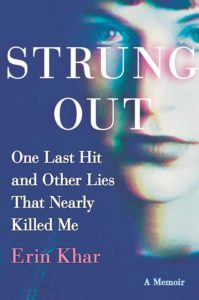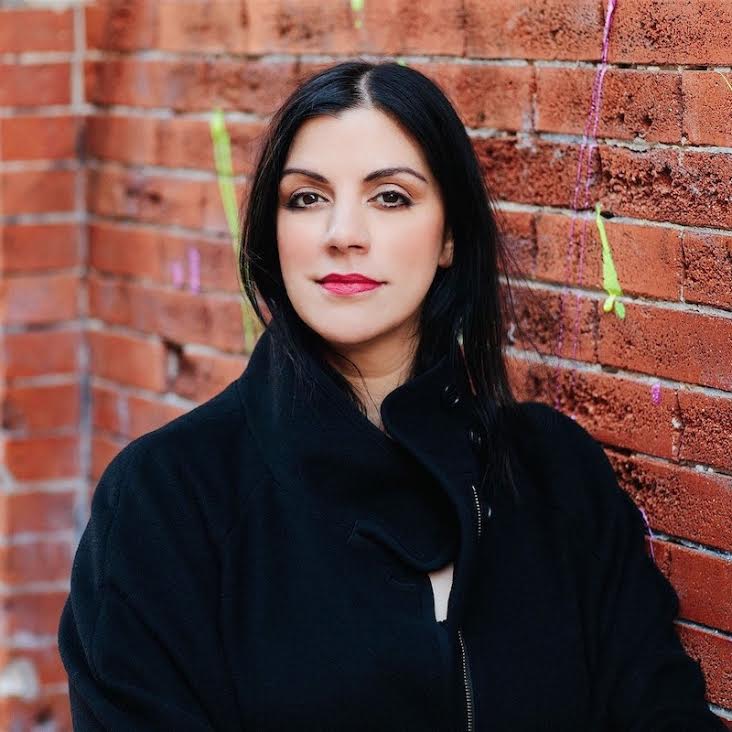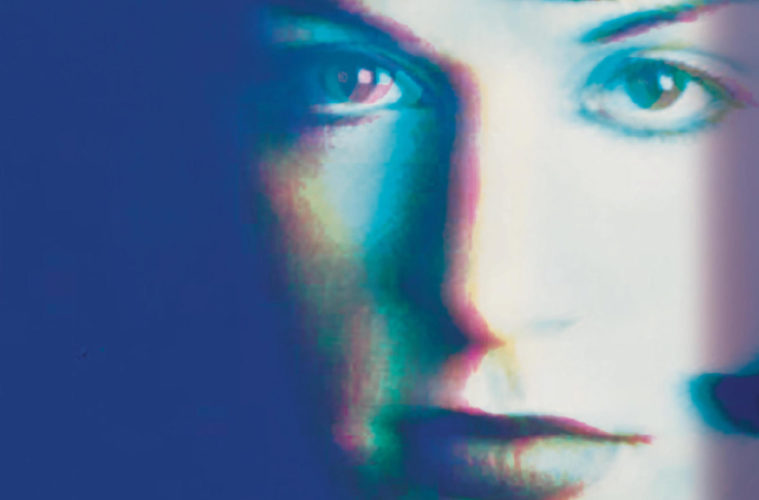Tap Dancing Backward
October 1997
Like most treatment programs, my rehab set up an aftercare plan for me. In lieu of going from the bungalow into a sober living house, I made an agreement to live with my mom for sixty days. I attended outpatient group twice a week at the bungalow and committed to ninety twelve-step meetings in ninety days. I had a blueprint for how to get through these early days of sobriety, and I would need one. I still couldn’t sleep well and days were long. But for once, I didn’t feel so unmoored; I felt hopeful.
“Hi! Welcome!” a tall, skinny guy in his thirties said as he stuck out his hand to shake mine.
We were on the steps outside of a building that resembled a log cabin in West Hollywood, set back from the street. I couldn’t believe I’d never noticed it before. I was there for my first twelve-step meeting outside of rehab, and I was nervous, and thankfully not alone. Tessa was with me.
Tessa and I met toward the end of my stay in rehab. She’d been attending their intensive outpatient program. She was five years old than me, a rock ‘n’ roll girl through and through, with long dark hair, and a cool vibe, like she just stepped off Led Zeppelin’s tour bus in the midseventies. She worked for a record label, and her boss sent her to treatment when he noticed that she was spinning out on alcohol and cocaine. She was my first real friend in sobriety.
The tall, skinny guy had a shaggy haircut and a broad smile, and as I shook his hand, he said, “I’m Bill.”
“Hi, I’m Erin. You look so familiar.”
We stood on the steps and chatted. Tessa and I told him that it was our first meeting outside of rehab. As we made small talk, I suddenly realized how I knew him.
“Wait, Bill, did you used to live in Beachwood Canyon…and, um, did you by any chance used to sell drugs?”
He laughed and said, “Yup! Did I sell to you?”
“Oh my god! Yeah, well, not to me, but to this weird guy I was dating. Mike-Jim. He had a weird tic where he would compulsively clear his throat.”
“Oh, yeah! I think I remember him.”
And with that, I made my second true friend after rehab.

(Courtesy Park Row Books/Harper Collins)
Those early weeks outside of rehab were filled with at least one twelve-step meeting a day, hours spent at Swingers diner on Beverly Boulevard drinking coffee and eating fries, killing time with Bill and Tessa, and sleeping with Andrew from rehab. That, however, didn’t last long; Andrew relapsed, and I knew that I couldn’t continue to be around him and not relapse. I cared for Andrew, but I cared for myself more and that was a first. I avoided thinking about Vincent too much by filling every minute of my day. I felt determined to stay sober. I started working again as a wardrobe stylist and diligently went through the twelve steps with my sponsor.
My first weekend at my mom’s house, my dad came to town again to see me. I spent my Saturday afternoon with them both. Dad was getting ready to leave, Mom was getting ready for a blind date, and I was about to head to Tessa’s. My cell phone rang. It was Polly. She was crying, frantic, calling me from a payphone at rehab. She’d been in treatment for four days, and Milo was home alone.
“Erin, you have to go check on Milo,” she said. “He’s been kicking at home, and he told me he couldn’t do it. I’m scared he’s going to kill himself. Please.”
“Oh god. Polly, I can’t go there.”
“Please, please. If you don’t go, I’ll have to leave. I can’t stay here and not help him.”
“Hold on, okay?” I said as I set the phone down.
I went to find my parents in the kitchen. I told them that Polly and Milo had been using, that Polly was in rehab, that Milo was all alone, and that Polly wanted me to check on him. I knew I couldn’t do what she was asking me to do; if I did, I knew Milo and I would get high.
My mom looked so pretty, ready for her date, leaning tall and golden against the kitchen counter. She straightened up and said, “You’re not going. I’ll go. We’ll go.”
Dad looked at her and back at me. “We’ll go.”
Mom called and canceled her blind date with the man who would become my stepfather. I swelled with gratitude. That they would do this for Milo, for me.
Later, my mom told me they found him in terrible shape—frail and mortified. My mom told him not to be embarrassed, that they were there to help. My dad went to the grocery store for supplies. My mom cleaned him up, cleaned up the apartment, cleaned the litter box and fed the cats. They made him mashed potatoes and cut up bananas. They made him drink water and tea, and my mom changed his sheets. My parents told me that they had no choice but to go, that if it had been me—sick and alone—they would have wanted someone else’s parents to do the same for me.
I hoped that Milo would make it through his kick and that Polly would finish her twenty-eight days and that we could go to meetings together and drink coffee and eat french fries at Swingers. Polly left rehab a couple of days later, and I didn’t hear from either of them for a long time. It would be almost a decade before I’d see them again. As painful as it was to step away from a friendship that I’d had since I was a teenager, the part of me that wanted to survive held me back from reaching out.
One night at the twelve-step meeting, the floor was opened to anyone who wanted to share. A tall, lanky, handsome guy with messy golden hair and prominent cheekbones walked to the front of the room.
Tessa elbowed me and whispered, “He looks like the Hugo Boss model.”
I didn’t catch his name because I was paying attention to Tessa.
He stood at the podium and told a story about needing to make amends to his old neighbors because he’d stolen their dog when he was high. He did it because he thought they didn’t take good care of the dog, but then the damn dog escaped, and no one ever saw the dog again. He had the whole room doubled over in laughter. I was smitten.
When we left the meeting, Tessa and I talked about “Dog Boy” and what a babe he was and “did he really steal that dog or was it a joke?” Every time I saw him at a meeting, I’d get nervous and sweaty and stay as far away from him as possible.
I wasn’t prepared for the onslaught of men who would come into my orbit as a newly sober young woman. Addiction has an energy, an energy that still surges inside you as your body adjusts. When you take alcohol and drugs away, sex and love can become the brightest, shiniest, and seemingly safest place to put all that energy. I learned that I’d have to differentiate between who was genuinely being friendly and supportive from those who were only interested in sex with a fresh face on the sobriety scene. And, it was a scene. Twelve-step meetings in the late ’90s in Los Angeles sometimes felt like singles bars without the booze. In some ways, the vibrant socializing made it easy and appealing to want to be there, but in other ways it served as a veil from the fact that many of us were so sick.

Author Erin Khar (Photo by Sylvie Rosokoff)
I made a few friends outside of Tessa and Bill, mostly men. I found it harder to make friends with the women in the program. One I did befriend was Sunny, a chatty and friendly Korean girl, a few years older than me, with short blue hair. She grew up in Beverly Hills, was going through a divorce, and like me, was a little boy crazy without drugs.
One rainy Monday afternoon in January 1998, Bill and I were thrift shopping at Wasteland on Melrose. We were talking about crushes, and I had just confided in him that I had a huge crush on Dog Boy, whose name I didn’t even know. We turned a corner around a rack of vintage leather jackets, and I quite literally ran into him. Dog Boy was standing right in front of me.
“Hey,” he said. “I know you.”
He knows me?
“Hi, what are you doing here?” Oh my GOD; what a stupid question.
“Just looking around. Are you going to the meeting tonight?” he asked, referring to the meeting in the log cabin building.
“Oh, yeah.”
“I’m Pete, by the way.”
“Erin.”
“I know. See you tonight,” he said, and with that he headed out the door.
Bill and I spent the next twenty minutes dissecting whether he’d heard any of our conversation. I was half mortified and half thrilled. He knew my name.
That night at the meeting, Pete and I chatted on the steps, smoking. He was smoking Gitanes, which I’d smoked when I lived in Paris. Afterward, he invited me to go with him and his friends to Swingers. We shared a Burst of Blue milkshake and some soggy fries, and he played “Torn and Frayed” by the Rolling Stones on the jukebox. When he talked, I found myself staring at his full lips and kind, hazel eyes and crooked teeth. I loved his crooked teeth. I found out that we’d gotten sober one day apart. He was thirty-two, a photographer, and currently in a sober living house in West LA. At the end of the night, he asked for my number.
He called the next day and asked me out on a date. When we hung up, I leaped across my living room and danced around like I was twelve years old. Could I really be falling for someone again? Without drugs, I was left open, without my usual defenses. It felt scary and exhilarating and I wanted this new vulnerability as much as it terrified me. This didn’t feel like a fling or a distraction, and I wasn’t sure I was ready for it, but I couldn’t stop myself from wanting all of it.
That Friday, Pete took me on our first date. We saw LA Confidential and ate ramen at a Japanese noodle house on the westside. He told me about his drug history and that he struggled with depression. He told me about moving to the US from the Netherlands when he was fourteen, about boarding school, and about losing his father to suicide. He was open and honest and I knew I could fall in love. It was raining, and when he drove me home, he parked in front of my building on Beachwood and we made out, listening to Morphine’s Cure for Pain album. Warm and alone in his car, we made our own bubble. I wanted to stay forever.
In early sobriety, it’s generally advised that you don’t get into a relationship within the first year. It’s not a shock I didn’t listen. Pete and I became involved very quickly. I felt like he was my destiny. I adored him. He was warm and kind, and I was drawn to him like a magnet. As much as I’d loved Vincent, I never truly trusted him. I trusted Pete in a way I had not trusted men before. But I was petrified because I didn’t trust myself.
Excerpted from Strung Out @ 2020 by Erin Khar, used with permission by Park Row Books/HarperCollins.
Advertising disclosure: We may receive compensation for some of the links in our stories. Thank you for supporting LA Weekly and our advertisers.

